The Gallery of Fluid Dynamics winners’ circle includes drops shaken loose from a wire, odor diffusion in a breeze, and droplets acting quantum-like.



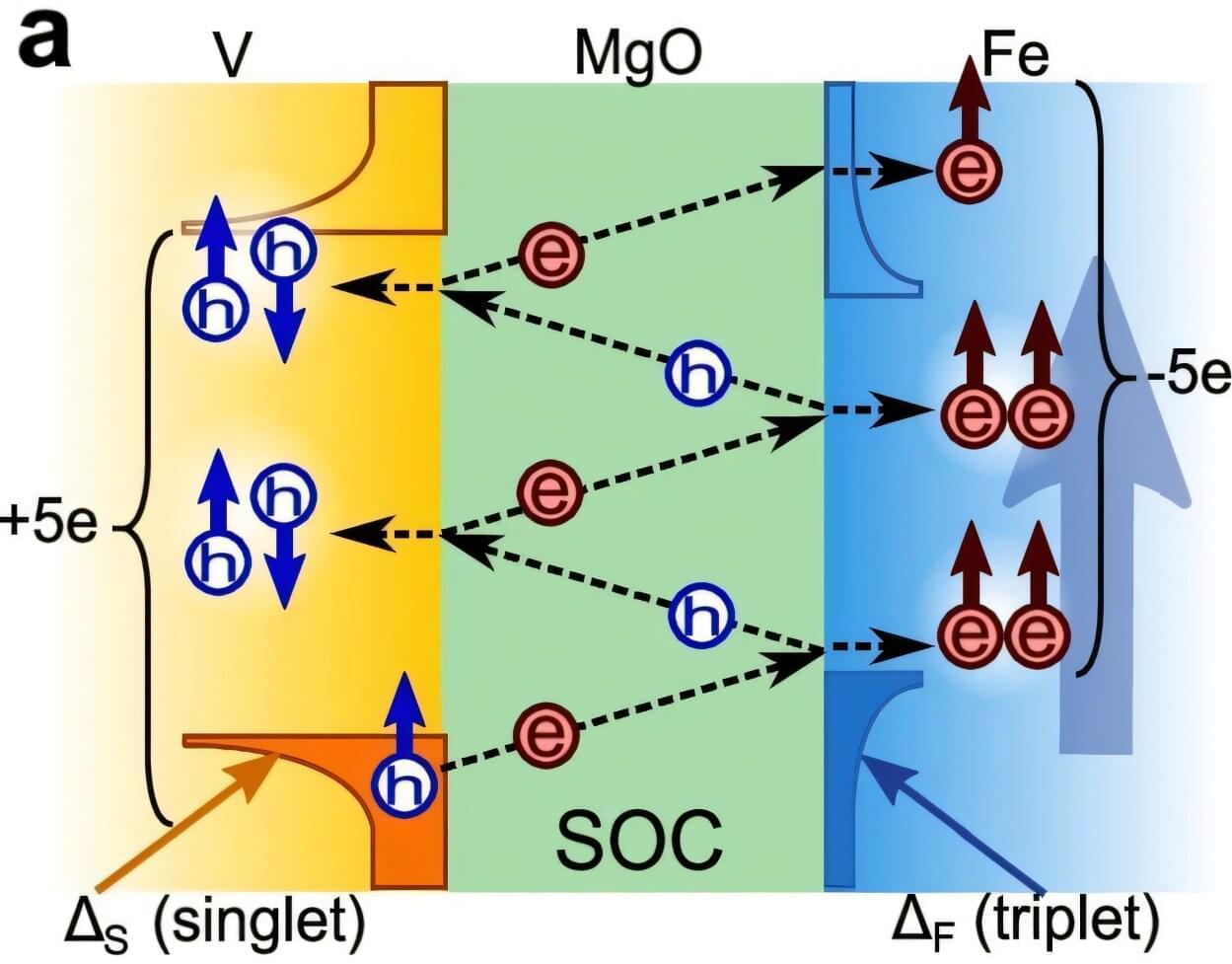
Separate two superconductors with a thin layer of material and something strange happens.
Their superconductivity—a property driven by paired electrons that allows electricity to flow without energy loss—can leak into the barrier and link together, synchronizing their behavior despite the separation.
This device is known as a Josephson junction. It’s the foundational building block of quantum computers and advances of it won the 2025 Nobel Prize in Physics.
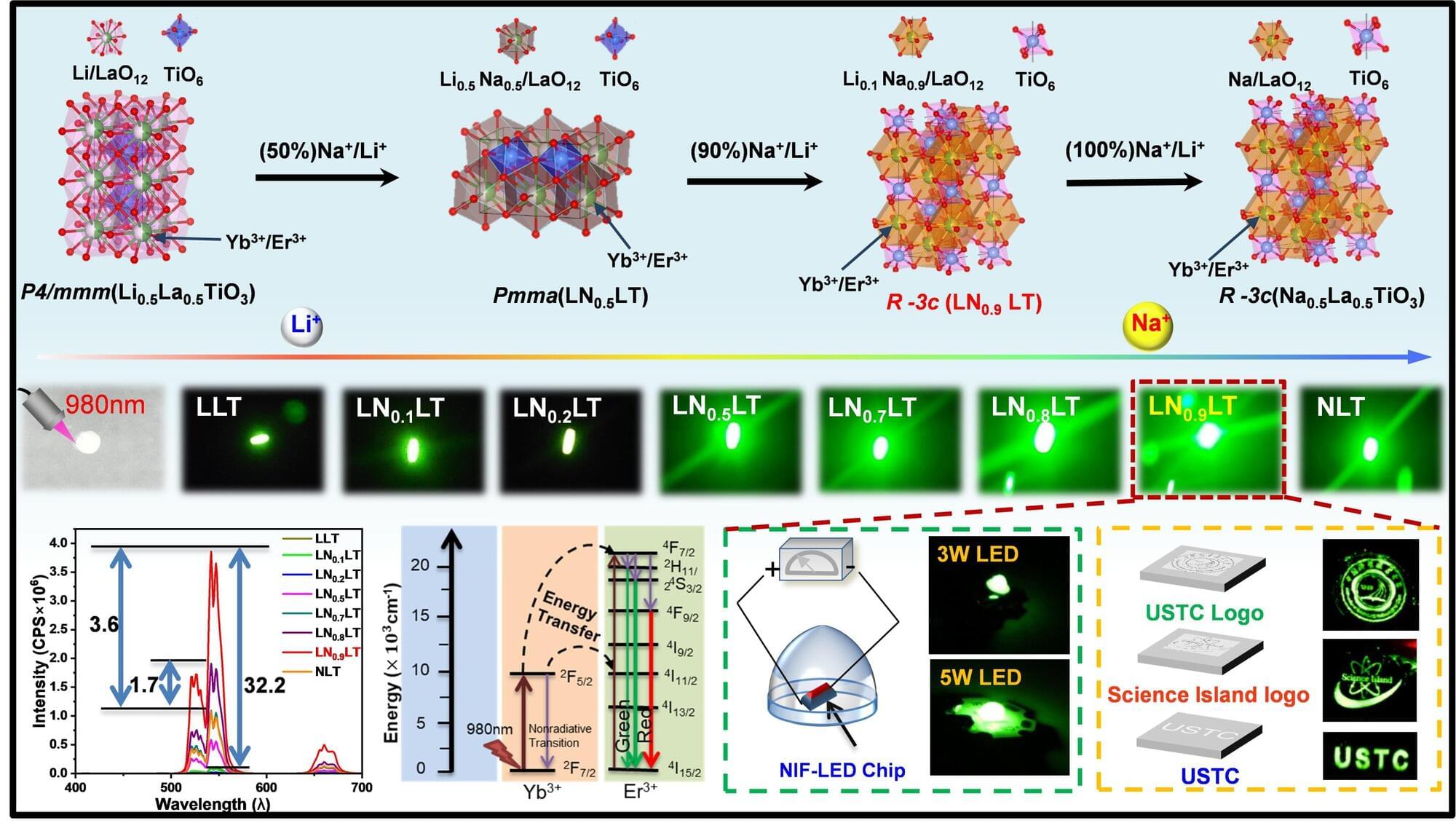
Researchers at the Hefei Institutes of Physical Science of the Chinese Academy of Sciences have developed a new way to significantly enhance upconversion luminescence in oxide perovskites, a class of materials known for their thermal and chemical stability but limited optical efficiency.
Led by Professor Jiang Changlong, the team introduced a dual-cation substitution strategy in titanate perovskites by precisely adjusting the sodium-to-lithium ratio at the crystal’s A-site. This controlled substitution triggers a structural transition that improves energy transfer between rare-earth ions, resulting in a marked increase in luminescence intensity and quantum yield.
The findings are published in Journal of Alloys and Compounds.
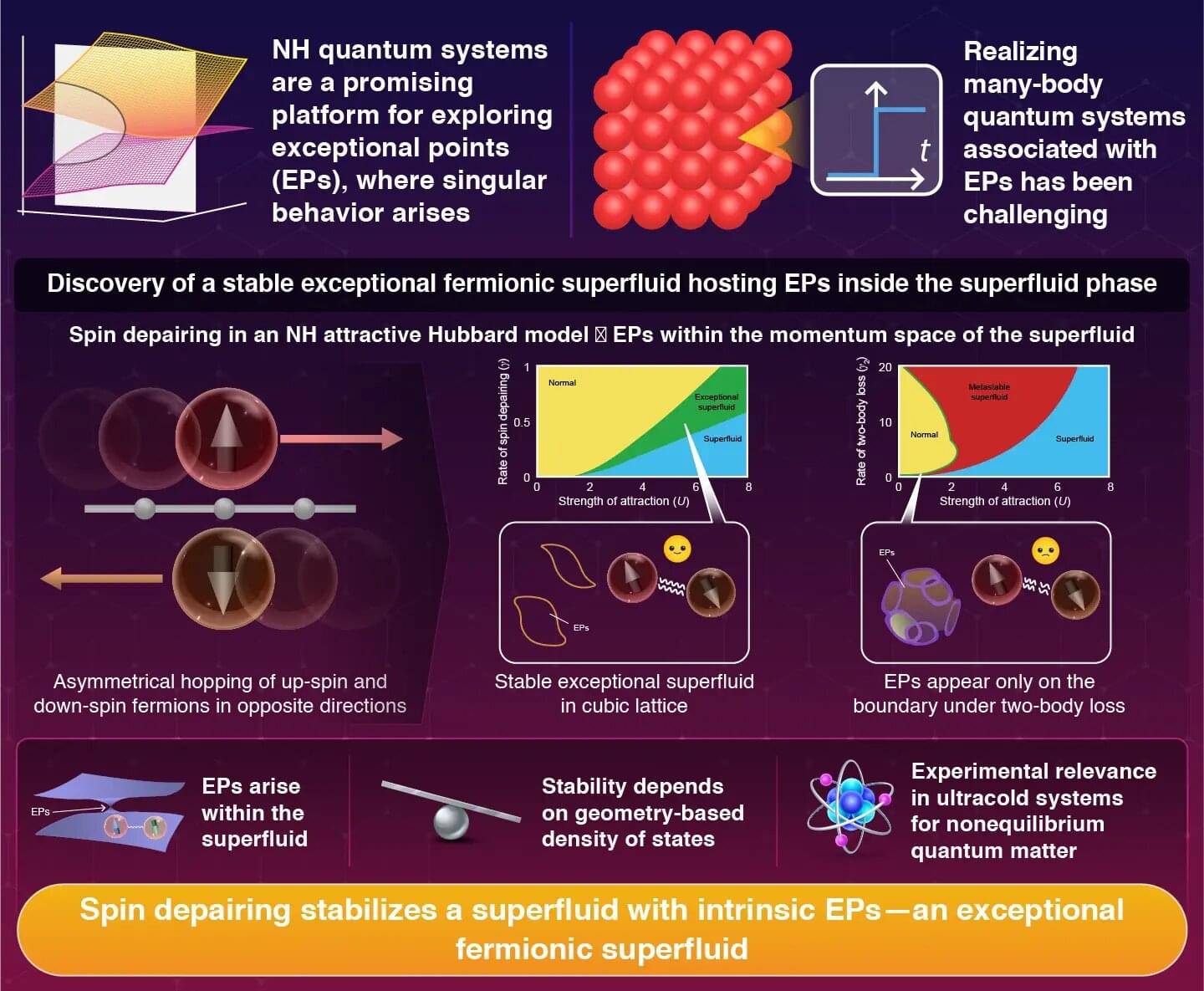
A stable “exceptional fermionic superfluid,” a new quantum phase that intrinsically hosts singularities known as exceptional points, has been discovered by researchers at the Institute of Science Tokyo.
Their analysis of a non-Hermitian quantum model with spin depairing shows that dissipation can actively stabilize a superfluid with these singularities embedded within it. The work reveals how lattice geometry dictates the phase’s stability and provides a path to realizing it in experiments with ultracold atoms.
In the quantum world, open quantum systems are those where particle loss and directional asymmetry are fundamental features. These systems can no longer be described by conventional mathematics.
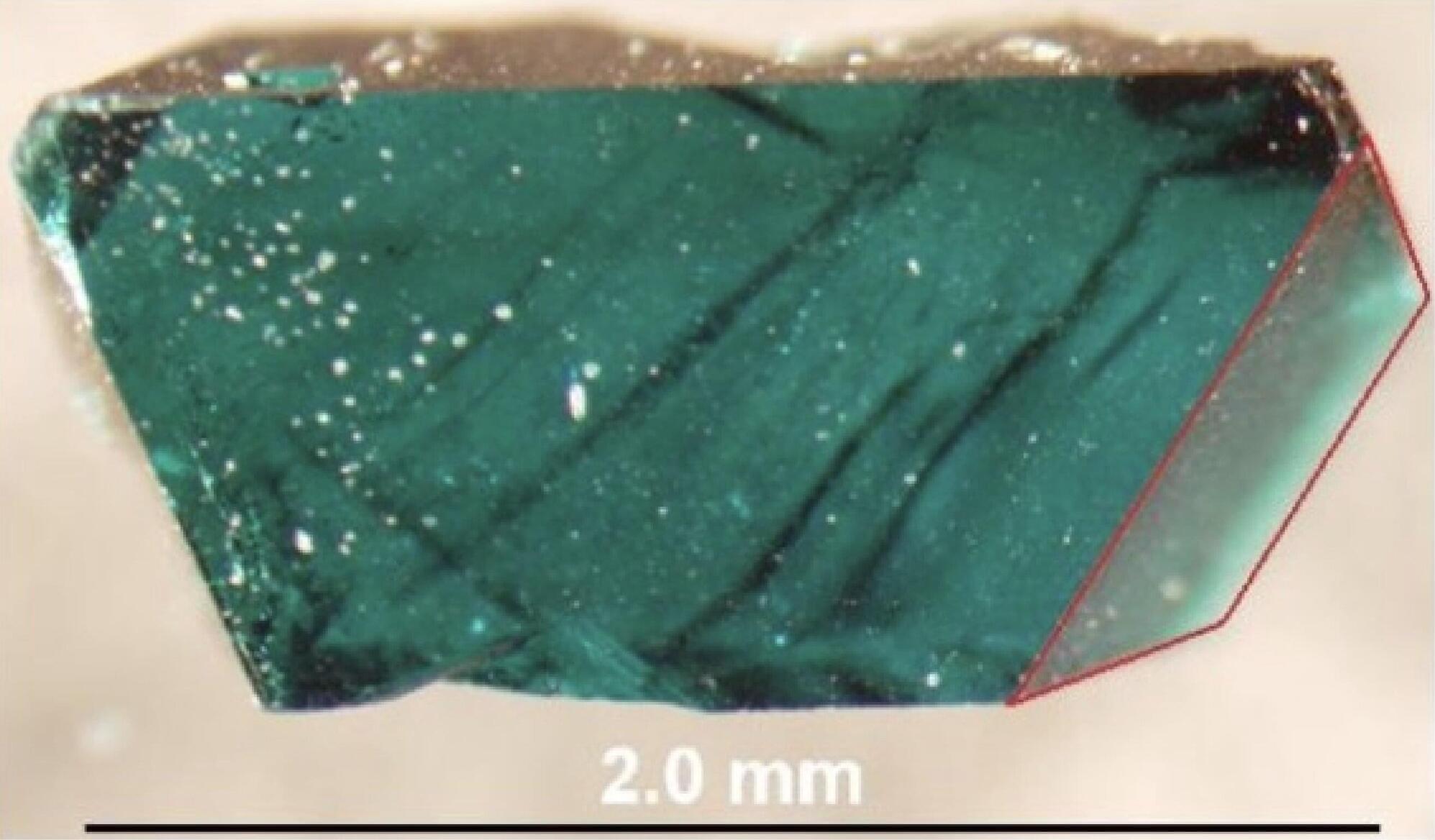
Quantum spin liquids are exotic states of matter in which spins (i.e., the intrinsic angular momentum of electrons) do not settle into an ordered pattern and continue to fluctuate, even at extremely low temperatures. This state is characterized by high entanglement, a quantum effect that causes particles to become linked so that the state of one affects the others’ states, even over long distances.
Researchers at SLAC National Accelerator Laboratory and Stanford University recently gathered evidence of intrinsic quantum spin liquid behavior in a kagome material, a magnetic material in which atoms are arranged in a particular pattern known as a kagome lattice. Their findings, published in Nature Physics, could help to further delineate the fundamental principles underpinning quantum spin liquid states.
“I’ve been interested in understanding quantum spin liquids for the past 20+ years,” Young S. Lee, senior author of the paper, told Phys.org. “These are fascinating new states of quantum matter. In principle, their ground states may possess long-range quantum entanglement, which is extremely rare in real materials.
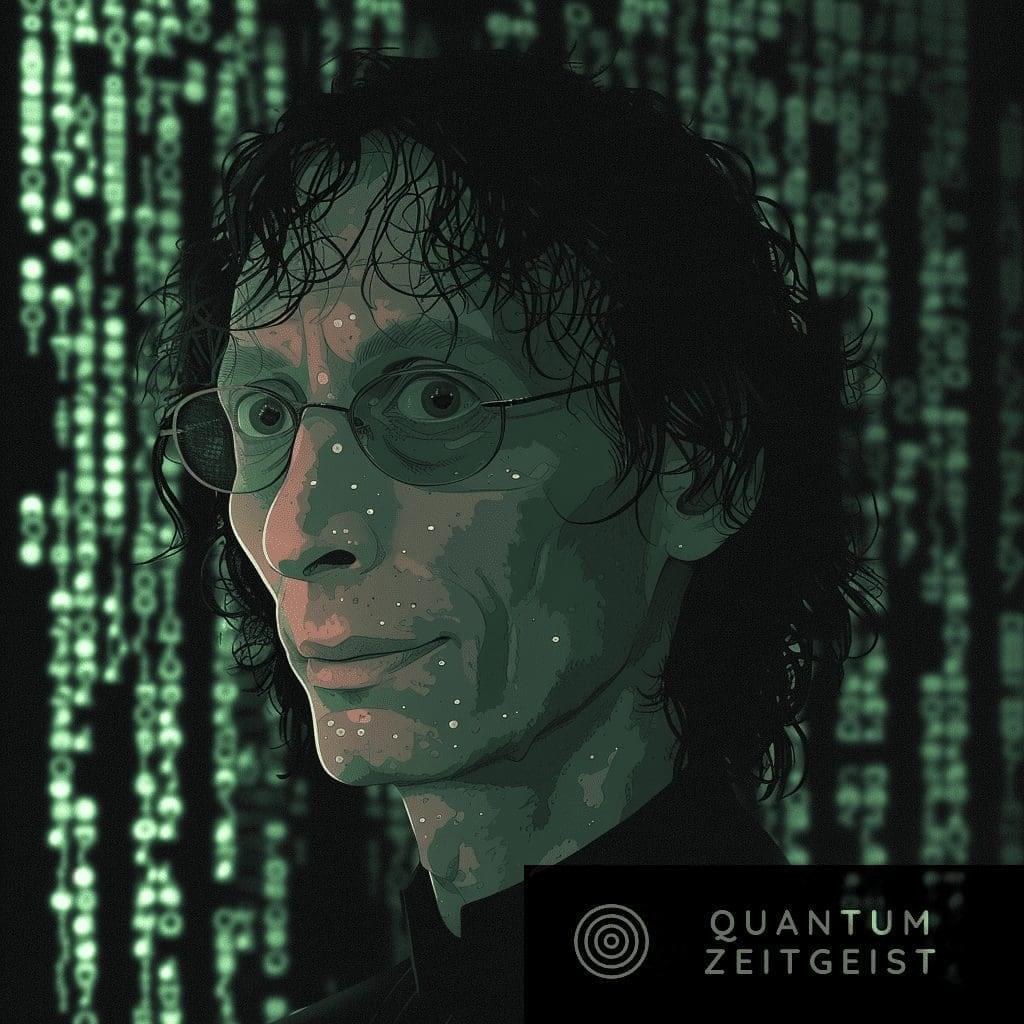
David Deutsch didn’t just contribute to the field of quantum computing—he redefined what computation *is*, bridging the gap between physics and information in a way no one had before. By theorizing the universal quantum computer, Deutsch opened the door to possibilities previously confined to science fiction, forever altering our understanding of reality and the limits of what machines can achieve.
Professor John Donoghue explains why quantum physics and gravity actually work perfectly together. He tackles quadratic gravity, effective field theory, and random dynamics, arguing that grand unification and naturalness aren’t required for a theory of everything.
As a listener of TOE you can get a special 20% off discount to The Economist and all it has to offer! Visit https://www.economist.com/toe.
SUPPORT:
Support me on Substack: https://curtjaimungal.substack.com/su…
JOIN MY SUBSTACK (Personal Writings): https://curtjaimungal.substack.com LISTEN ON SPOTIFY: https://open.spotify.com/show/4gL14b9… TIMESTAMPS:
LINKS MENTIONED:
SOCIALS:
Guests do not pay to appear. Theories of Everything receives revenue solely from viewer donations, platform ads, and clearly labelled sponsors; no guest or associated entity has ever given compensation, directly or through intermediaries. #science.
Support me on Crypto: https://commerce.coinbase.com/checkou…
Support me on PayPal: https://www.paypal.com/donate?hosted_…
JOIN MY SUBSTACK (Personal Writings): https://curtjaimungal.substack.com.
LISTEN ON SPOTIFY: https://open.spotify.com/show/4gL14b9…
TIMESTAMPS:
Bose–Einstein Condensate (BEC) explained: Cool a dilute gas of atoms to billionths of a degree above absolute zero and they merge into one coherent matter wave—a Bose–Einstein condensate. This video covers laser cooling, magnetic/optical traps, evaporative cooling, the onset of quantum degeneracy, and why a BEC behaves like a superfluid. See signatures: interference fringes, quantized vortices, long coherence length, and frictionless flow. Applications include atom interferometers (precision gravity and rotation sensing), quantum simulation of complex materials, and space-based experiments (ISS Cold Atom Lab). We also touch on first BECs (1995, rubidium/sodium), critical temperature, and why bosons condense while fermions do not.
Please see this news story on a remarkable new technological cybersecurity breakthrough for mitigating the threats of Q-Day and AI:
#cybersecurity #quantum #tech
The next leap in technology: a quantum computer unlike anything humanity has seen, capable of breaking all encryption and challenging the most crucial national security defenses.
Tal Shenhav from i24NEWS Hebrew channel has the story.